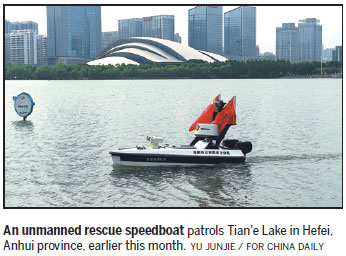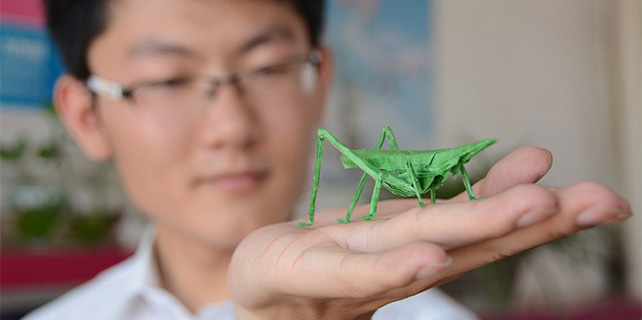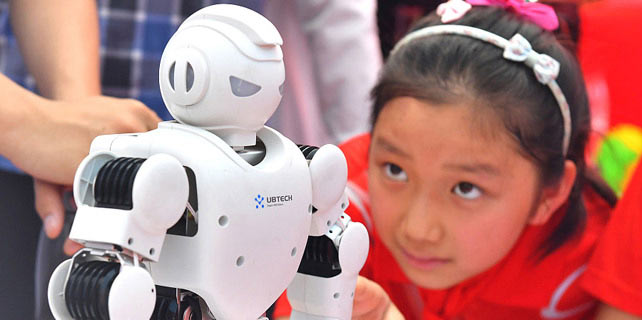Robotic rescue boat to replace lifeguards
An aquatic robot put into use recently in Hefei, Anhui province, is expected to protect people from drowning and replace dozens of human lifeguards.
The robot, believed to be China's first unmanned speedboat, was officially launched in Tian'e Lake on July 3 after months of trials.
The boat, which is 2.8 meters long, is equipped with cameras, infrared sensors and acoustic sensors to detect "moving targets" in the water, according to Zhang Bao, deputy general manager of Anhui CAS-Huacheng Intelligent Technology, a company affiliated with the Chinese Academy of Sciences' Hefei Institute of Physical Science.
"A radio transmitter built on an island in the lake helps the boat divide the water into different sectors," he said.
When a person, often a swimmer, is getting close to the danger line, which is invisible, it will warn him or her of the danger with a loudspeaker.
Once the person crosses the danger line, the speedboat will locate him or her, and go to the person in danger while sending alerts to the command center and human lifeguards via an app, so that a rescue team can take action promptly.
If drowning person is able to grab the boat, it will bring the person to safety, Zhang said.
Tian'e Lake was opened to the public in 2004.
"At least 66 people have drowned," said Wang Xu, an official with the local water police. "Fifteen of those died in 2016."
"Most of the victims were swimmers. Others committed suicide," he added.
No drownings have been reported since the company put a trial boat in the lake in November, according to Zhang.
Although the lake is only about 1.5 kilometers from east to west and 800 meters north to south, local authorities have employed about 110 lifeguards working in four shifts a day, to patrol the lake.
"In the future, most of the lifeguards will be replaced by the robot," Zhang said. "The boat, powered by a battery, can be used to patrol rivers, reservoirs, lakes and seas - not only for security purposes but also for environmental surveillance and data collection."
zhulixin@chinadaily.com.cn

(China Daily USA 07/13/2017 page5)












